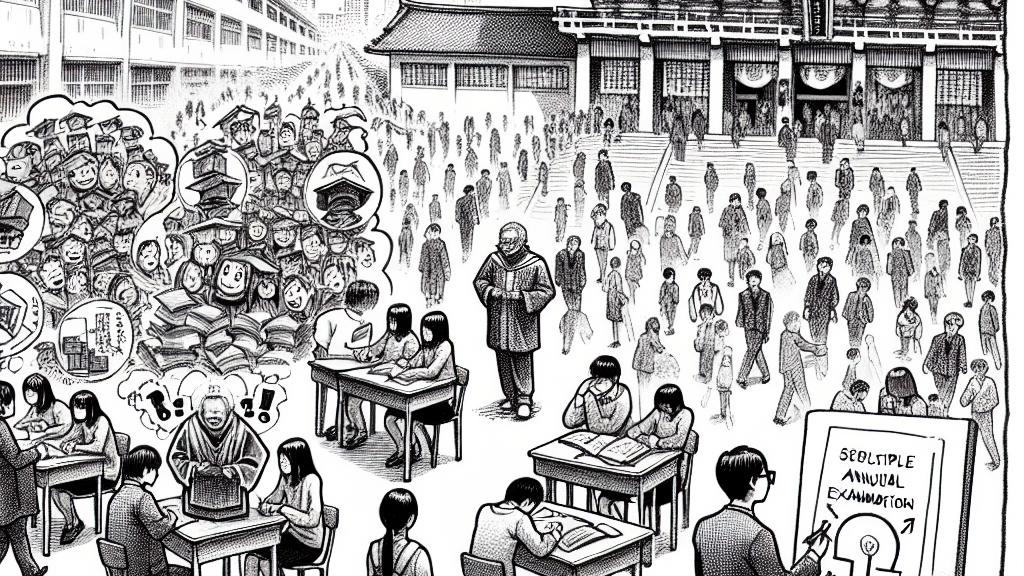Proposal for Multiple Common Tests in University Admissions
Overview
- Taro Kono advocates for a radical overhaul of Japan's university entrance examination system.
- He proposes providing students with multiple testing opportunities throughout the year to alleviate exam stress and enhance fairness.
- This initiative reflects a growing trend towards diverse assessment methods that prioritize student well-being and comprehensive evaluation.

The Rationale Behind Kono's Proposal
In Japan, university admissions hinge heavily on the results of a single annual examination, the Common University Entrance Test. Taro Kono, the Minister of Digital Affairs and a candidate for the Liberal Democratic Party’s presidential election, argues passionately against this high-stakes approach. He believes that relying on just one test day can create undue pressure on students. For instance, consider a bright student who has prepared intensely but struggles with anxiety or faces unexpected health issues on exam day. Such situations can shatter dreams that have been built over long years of hard work. Kono’s proposal to implement multiple testing sessions throughout the year seeks to change this narrative. By allowing students more than one chance to demonstrate their abilities, the pressure diminishes and the playing field levels, allowing a broader assessment of student potential.
Current Examination Practices and Their Limitations
At present, the landscape of university admissions in Japan is characterized by its rigidity. The Common University Entrance Test, occurring once annually, functions as the gatekeeper to higher education. This year, as many as 49 million students are expected to register for this critical exam. Yet, the looming challenge remains: if a student performs poorly due to illness or unforeseen circumstances, their entire future might hinge on a single moment. Recognizing this flaw, Kono points towards a transformative solution. Imagine if students had the ability to take the exam two or three times a year, selecting their top score to present to universities. Additionally, he questions whether it is truly necessary to assess a myriad of subjects, advocating instead for a system where students can focus on areas that genuinely interest them. Such changes would empower learners to pursue knowledge not merely for exams, but for personal and intellectual growth.
Future Trends in University Admissions
Kono's proposal resonates with a broader shift in the landscape of university admissions. Recent data shows a remarkable increase in the number of students gaining admission through recommendation-based methods, with approximately 50% of new entrants taking this route. This evolution reflects a more holistic approach to understanding student capabilities, looking beyond traditional rote memorization. Kono challenges existing norms by asking critical questions: What knowledge is essential for a student’s success? How can education adapt to meet the diverse aspirations of young people? His insights push the conversation forward, heralding the possibility of a system where diverse strengths are recognized and encouraged. As educational paradigms shift, the necessity for reforms in assessment methods is more pressing than ever. Kono’s foresight could pave the way for a more equitable and responsive university admissions process, fostering a learning environment where every student feels valued and empowered to succeed.

Loading...